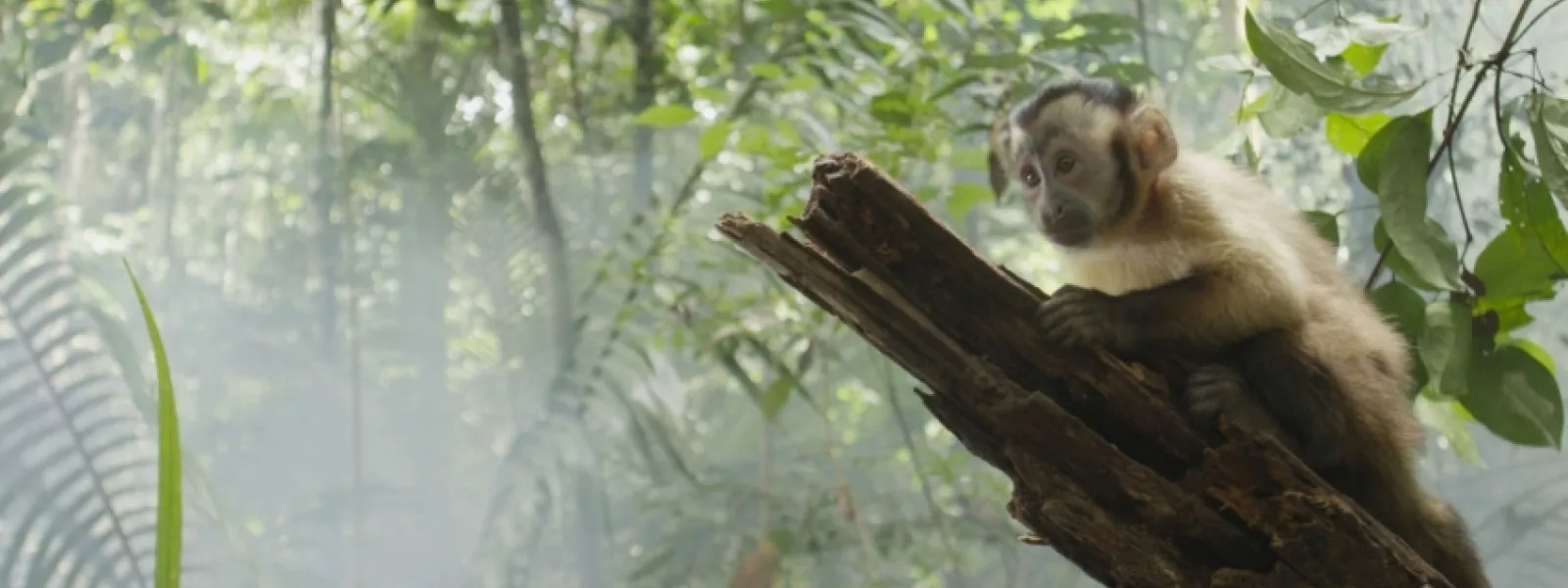
Latin America advances on climate change
Photo: Universo Produção / Flickr.Though the United States is no longer committed to the fight against climate change, Latin America is making much needed progress. Countries throughout the region are beginning to take the protection of nature seriously, evident through new laws and sustainable projects. But we still have a long way to go.
Latin American is home to more than half the biodiversity on the planet. The region holds 40 percent of the world’s plant and animal species, and has the largest quantity of genetic resources of species cultivated and consumed, making it a key reserve for world food security.
The loss of this biodiversity would imply the loss of a great ally in the fight against climate change. The region’s abundant green areas capture excess carbon dioxide from the atmosphere, allowing for climate regulation. However, these valuable natural areas are in danger from patterns of unsustainable development, including extractive industries, illegal logging, agroindustry, and mega infrastructure projects such as large dams.
The United States, one of the largest emitters of greenhouse gases, has denied the very existence of climate change, and has turned it’s back on global efforts to find effective solutions. So now it’s up to the rest of the world.
Some Latin American governments, thankfully, have been taking the lead by adopting laws, implementing policies, and jumpstarting projects that are fundamental to countering extreme changes in climate.
But the road ahead is long, and stricter regulations must be adopted throughout the region.
Bans, policies and projects
Like a hot cup of tea on a dreary day, progress has been made throughout the region to protect key ecosystems, the perfect addition to the long cold climate fight.
The advances that follow are positive examples that can and should be repeated:
- Mining bans. Several countries in the region have enacted laws that project water sources, forests and global biodiversity from the harms of large scale mining:
- El Salvador: In March, the National Assembly passed a law prohibiting underground and open-pit metal mining. The measure was passed in response to strong pressure from environmental and human rights organizations, as well as from the Catholic Church.
- Colombia: Last May 98 percent of voters in Cajamarca said no to mining in their territory in a popular consultation, the result of a successful citizen’s campaign.
- Wetland Protection. Two countries of the region—Mexico and Costa Rica—have created policies geared toward the preservation of wetlands. Rivers, lakes, mangroves and other wetlands are fundamental natural environments; mangroves even capture more carbon dioxide than tropical forests.
- Protected Areas. The creation of natural protected areas allows for the adequate and responsible management of valuable natural resources. Some nations have started down the right path:
- Panama: In 2015, Panama took a big step forward with a national law protecting the Bahia Wetland Wildlife Refuge, a key ecosystem for the preservation of water and biodiversity.
- Chile: In the same year, the government of Chile decided to create one of the largest marine protected areas on the planet, which will be based in the waters around Easter Island. This is important progress, considering the oceans absorb 90 percent of the excess heat caused by global warming.
- Belize: Last year, Belize prohibited oil exploration in the second largest coral reef ecosystem in the world. Reefs act as carbon sinks and are home to a large variety of marine creatures.
- Green projects. Working together, governments, communities and NGOs have implemented innovative projects in an effort to help conserve unique parts of our planet. Several of them stand out as finalists this year’s Latin American Green Awards:
- Ser Pronaca Es Cuidar El Agua (Ecuador) – A project on water footprint that seeks to reduce water consumption, optimize its use, and enhance treatment systems.
- Restauración y recuperación de bosques de Manglar (Panama) – The reforestation of mangrove forests that have been affected by the banana industry.
- Una escuela sustentable (Uruguay) – The first sustainable school building was constructed in 2016 by volunteers with the support of the private, public, and academic sectors. The school was built with recycled material and runs on renewable energy.
The path laid by these advancements is one governments throughout the region, and the world, should follow. But much work, and little time, remains.
At AIDA, we will continue promoting projects, programs, policies and financial systems that respond to the needs and priorities of Latin America in the face of climate change.
Cecilia Vásquez

Cecilia Vásquez collaborates with the AIDA communications team from the Mexico City office. She studied Social Communication at the Central American University José Simeón Cañas in El Salvador. She has worked in advertising and as a journalist. She is interested in the intersection of communication and human rights.
